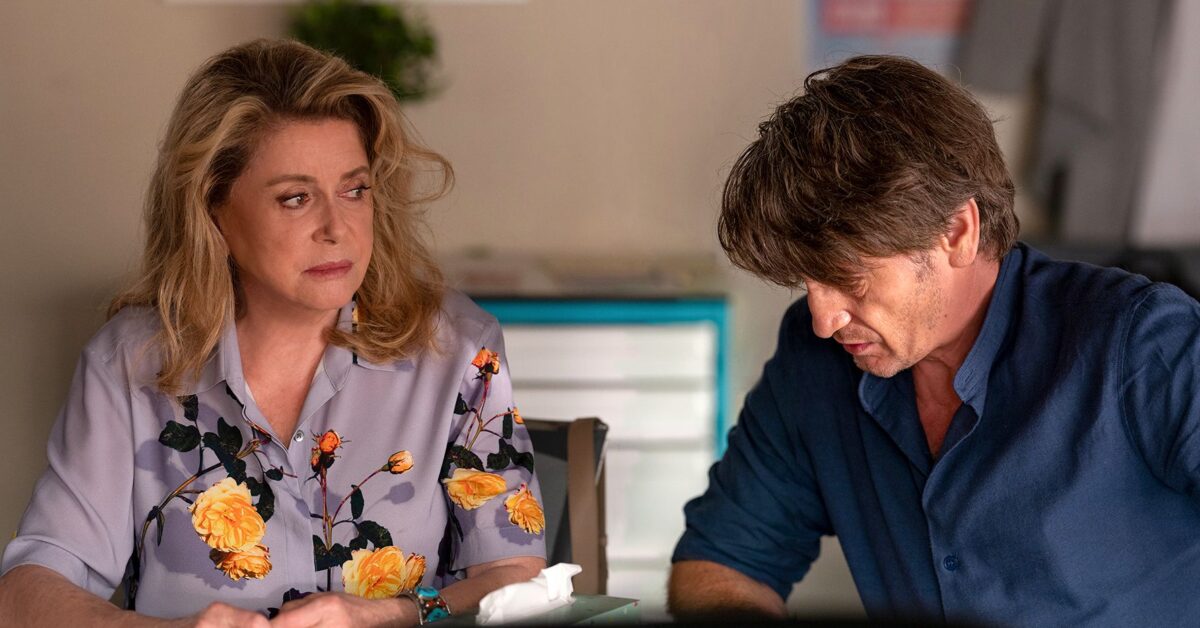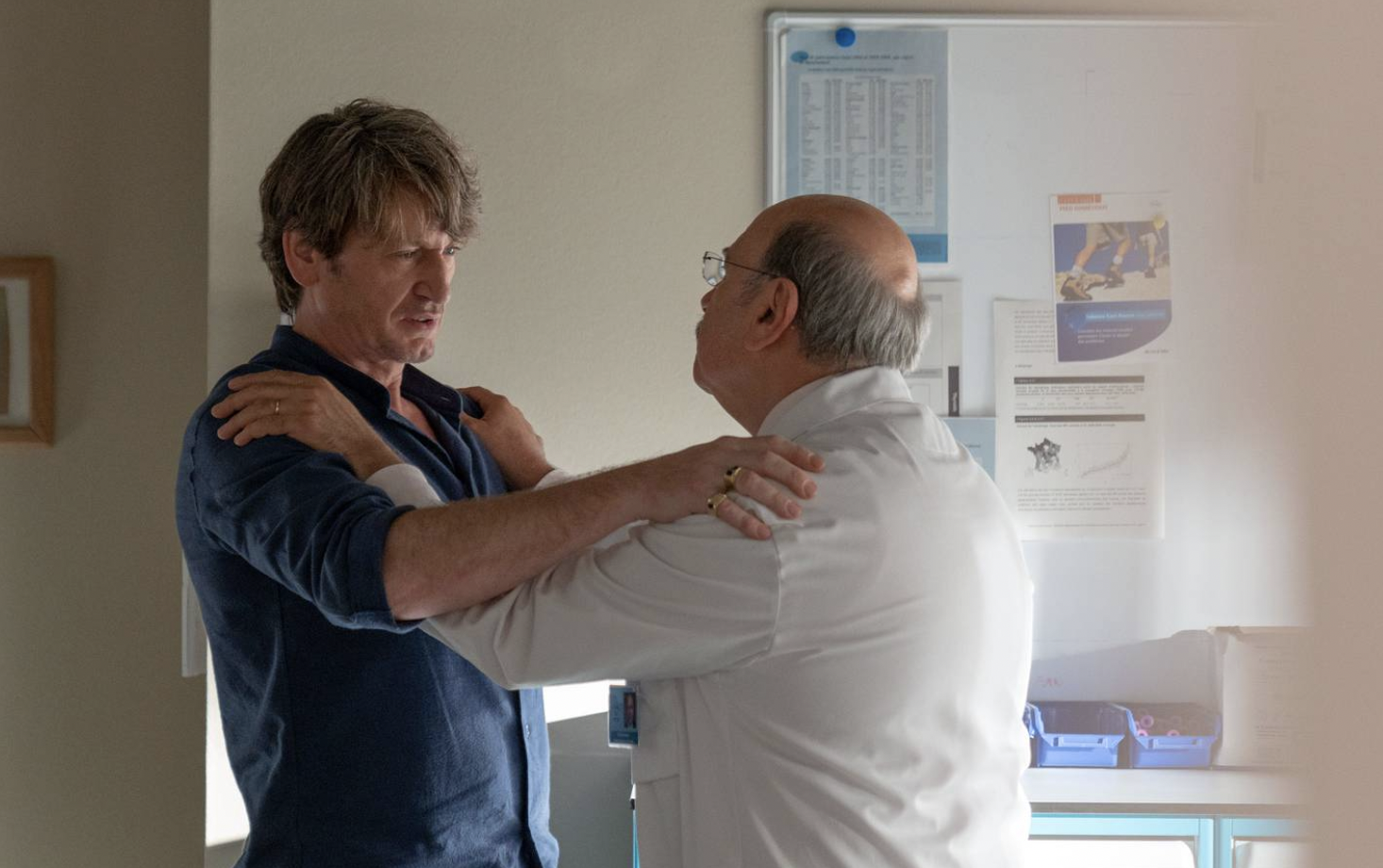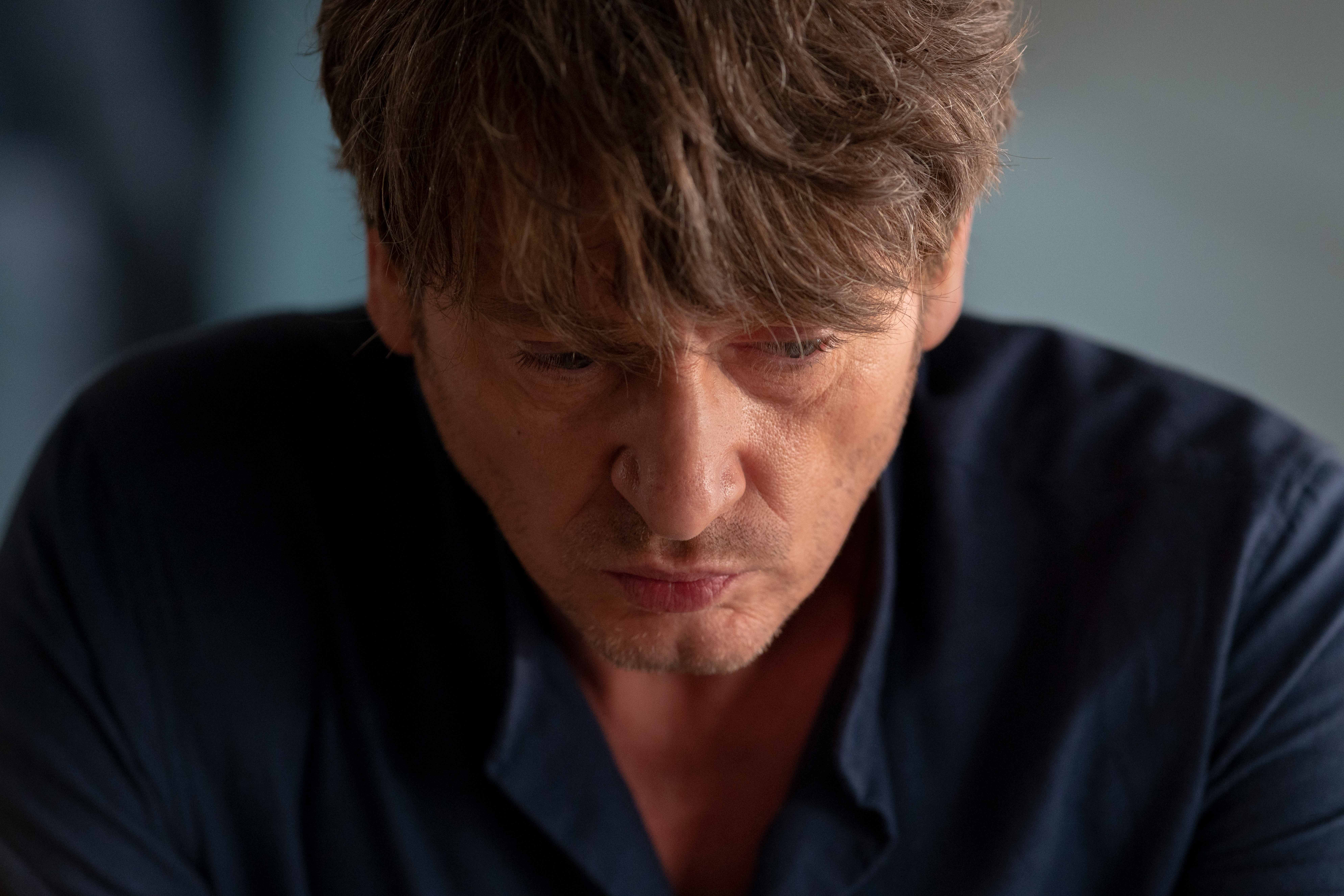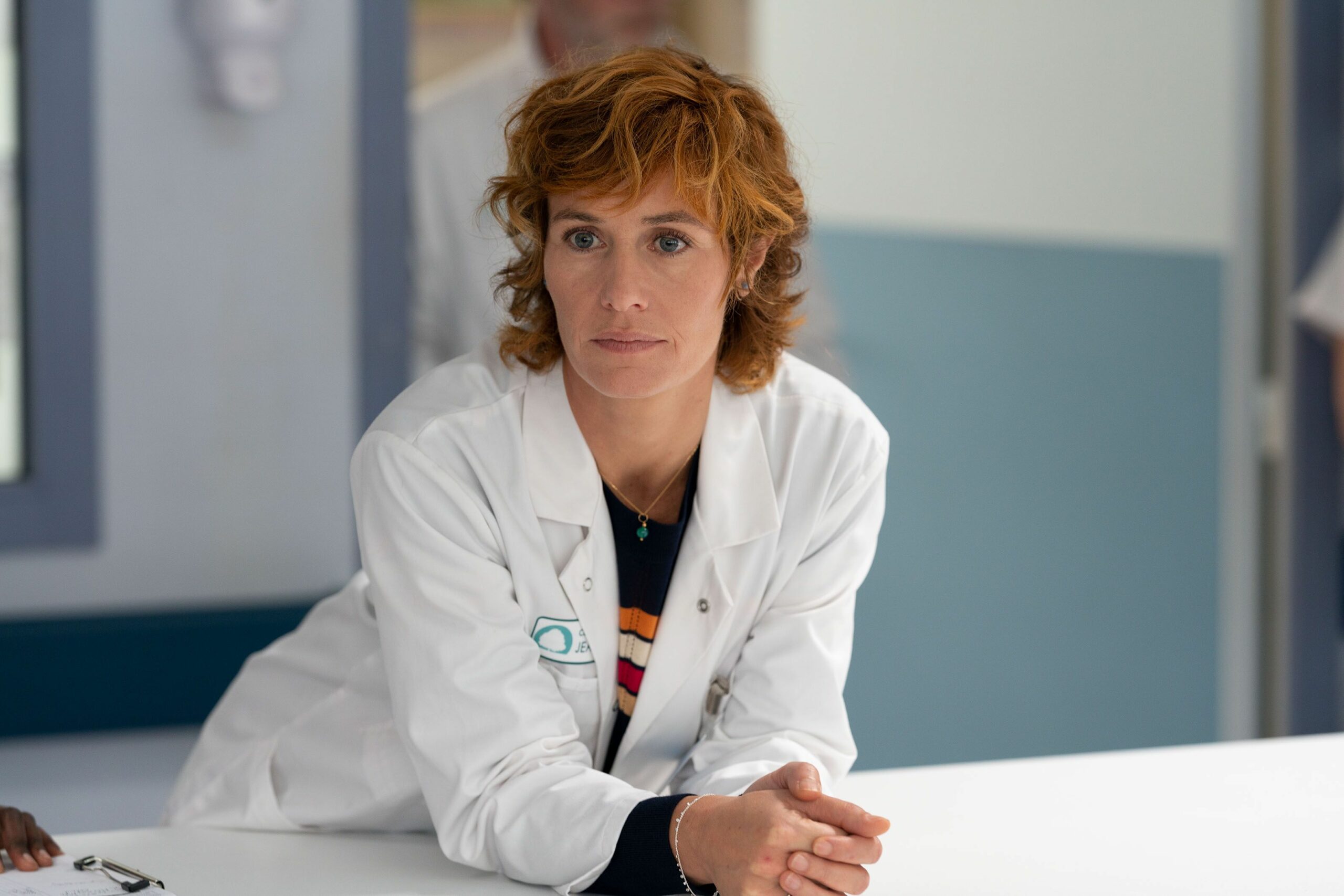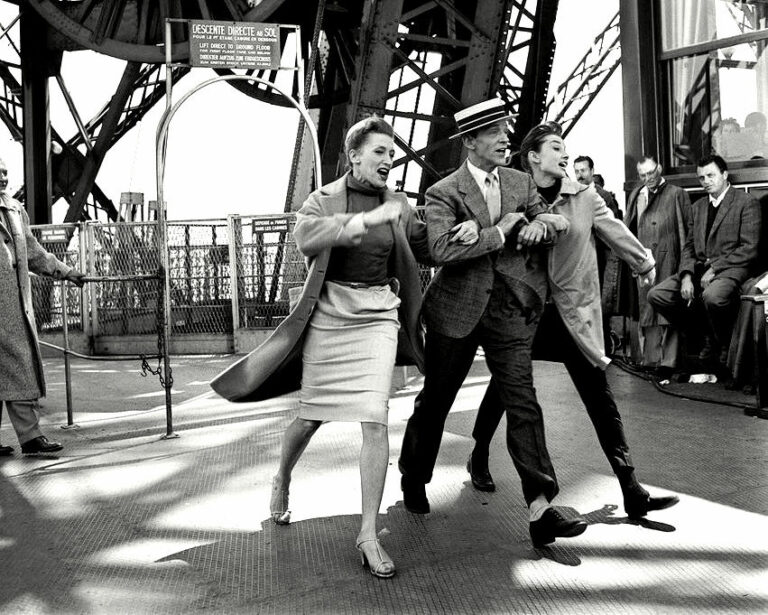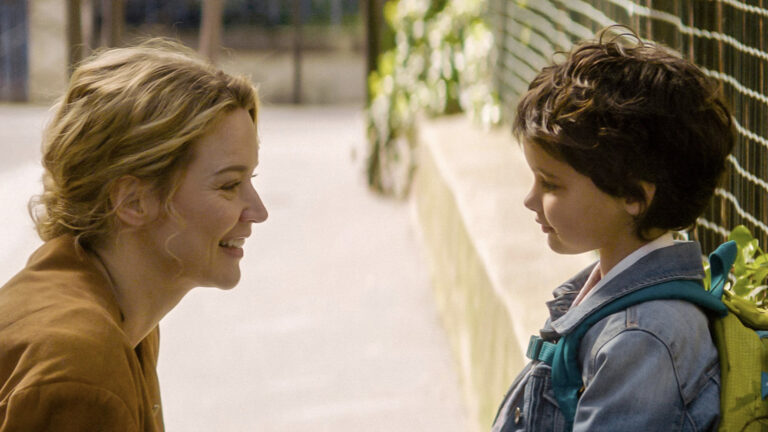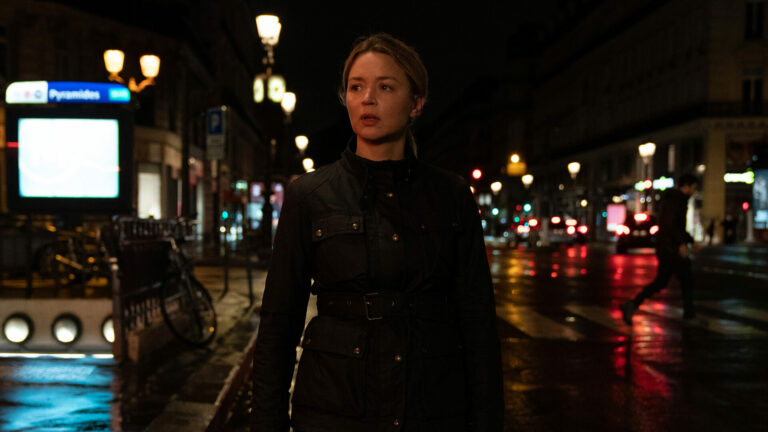Truth be told, I dreaded watching this movie. It’s about Benjamin Boltanski, a 39-year-old man who’s dying of cancer and his mother who can’t bear to let him go. Sounds like a real downer, right? But on the other hand it stars screen legend Catherine Deneuve (The Umbrellas of Cherbourg, 8 Women) and Benoît Magimel (The Piano Teacher, Lovers), who won the César Award for Best Actor for the role. The pair had teamed up previously in Standing Tall, also co-written (with Marcia Romano) and directed by Emmanuelle Bercot, which opened the 2015 Cannes Film Festival, was nominated for eight César Awards, and won two, including Best Supporting Actor, again for Magimel. And so, one night when I was home alone, I wrapped myself in a warm blanket, took a deep breath, and steeled myself for what I assumed would be a soggy—and possibly quite sappy—weep-fest.
The film caught me by surprise. Yes, it’s about cancer and yes, it turned me into a veritable puddle. But the wisdom imparted from doctor to both patient and mother, which allows at least the patient to reach a level of acceptance that borders on enlightenment, is worth a couple hours of heartache and tears. This is largely thanks to Dr. Eddé, the character played by Dr. Gabriel A. Sara, who is not an actor but a real-life oncologist at Mount Sinai in New York, who inspired the role and, in some ways, the film itself. Dr. Sara (who speaks French in the movie) met director Emmanuelle Bercot at a New York screening of her film Standing Tall, and through several meetings that followed, in which they discussed Sara’s work and worldview, Bercot decided to make this film.
Bercot’s casting of Dr. Sara as Benjamin’s oncologist delighted the doctor, who’d never dreamed of acting in a movie, and we immediately understand her decision. Sara is beyond likeable. As much a philosopher and therapist as he is a physician, Dr. Eddé comes off as brilliant, preternaturally generous and kind, almost a saint. His philosophy and practice, modeled after Sara’s, are driven by absolute truth, absolute honesty. He prescribes practices that lead his patients to accept and prepare for their death. For example, he encourages them to “tidy the office of their life,” meaning to forgive, apologize, leave no personal stone unturned. Leaving his small patch of earth clean and unencumbered, leaving nothing left unsaid allows a dying man to accept the end and depart peacefully. This is the heart of Benjamin’s story.
The film opens on a staff meeting in a hospital oncology ward. A nurse describes a scene with a patient, whose wife was determined to be with him in his final moment. After spending the entire day together, he died 10 minutes after she’d left for the night. The wife was devastated, as was the nurse, who couldn’t find the words to comfort her. Dr. Eddé (Sara), who’s running the meeting, points out that often a patient decides when it is time to go and who he wants in the room. This patient had spent a loving day with his wife and, once she left, he chose to let go. Dr. Eddé asks everyone to think of one word inspired by the story—Guilt. Powerlessness. Sorrow. Courage. Solitude.—then picks up a guitar and plays Lean on Me while his staff sings along.
It’s only after this joyful song that we see Benjamin (Magimel), who’s meeting Dr. Eddé and his assistant, Eugénie (Cécile de France), for the first time. His mother, Crystal (Deneuve), shows up, clearly anxious. Benjamin declares himself a failed actor, well, teacher, flirts with Eugénie, and describes his illness as he sees it. He never uses the word cancer. He’s got a messed-up pancreas. He’s opposed to chemotherapy—because, his mother says, he’s afraid of losing his hair. When it’s the doctor’s turn to speak, he says that he believes above all in the truth, and the truth is that Benjamin has incurable stage four pancreatic cancer. “I’ll never tell you, ‘I’ll cure your cancer,’” he says. “I’d be a liar.” He encourages Benjamin to do chemo, as it will increase his quality of life and possibly give him more time. But quality of life is key. Benjamin tells his audience that at his funeral he wants everyone in shorts and a jazz band.
But Dr. Eddé’s words stay with him. In the acting class he teaches, he has his students act out a final goodbye in pairs: This is it—they will never see each other again. With the camera as close as physically possible, some hug, others kiss, many cry. One woman clings, unwilling to let go, wrapping herself around her lover’s waist, legs, ankles, as her partner attempts to break free. Everyone, Benjamin included, is moved by the raw emotion and vulnerability. At a second meeting with the kind doctor, he cries, and Dr. Eddé asks him, in a stunning line of dialogue, “Are you ashamed of having cancer?” He explains that anyone can get this disease. Benjamin has done nothing to make it happen. His mother wants to take the blame, but Dr. Eddé has none of it. It’s not the time for guilt or blame. He speaks firmly, kindly, about the facts—Benjamin likely has 6-12 months to live—and the journey they will take together. The journey, he says, is as important to consider as the amount of time he has left. Benjamin gets it this time, but that doesn’t stop him from doing a little dance with his almost bald, bespectacled doctor.
So the journey begins, the doctor along the way helping Benjamin face his death and his mother accept that she is going to lose her son. At one point, Crystal becomes enraged to see a pair of tango dancers performing for the patients doing chemo. How dare they make light of her devastation? But the patients’ faces register delight. At his next chemo session, Benjamin, too, smiles at the music and dance. Dr. Eddé offers support that is philosophical, almost spiritual, in addition to medical. By pushing Benjamin to figure out what it means for him to “tidy up the office of his life,” he empowers him. The doctor provides similar support to Crystal, who is adrift, clinging to hope where there is none. Dr. Eddé’s goal is for Benjamin’s death to be a beautiful, rather than painful or depressing, experience, but Crystal needs time.
Along with other tools, Dr. Eddé tells Benjamin the five things a dying person should say to a loved one before he goes: Forgive me. I forgive you. I love you. Thank you. Goodbye. We know when he says these words, we will be choking back tears. In one conversation with his mom, he points out that there is no word, like orphan, for a person who loses a child. It doesn’t seem right.
In a devastating moment, Benjamin confesses to Eugénie that he hasn’t accomplished anything. “I haven’t made anyone happy,” he says. “I’ll leave as I came. As nothing. I’ll leave the world unchanged. I’m dying without living intensely.” If her response rings implausible, it’s a minor stumble in a movie that offers so much depth and insight. We understand her desire to make this dying man she cares about feel seen and heard and cherished—and her whispered confession is deeply satisfying. Also clumsy is the discovery that Benjamin has a son he’s never met. The possibility of their meeting before his death is dangled before the viewer—a hope for, what…redemption? A final chance at connection or meaning? While the thread is tantalizing, it never really delivers the catharsis it promises.
More importantly, in a wrenching and emotional arc, we watch Benjamin grow and change. In bed, exhausted and haggard, he reads the plays of Shakespeare. His mother reads a letter to his students that illustrates the wisdom he has attained, simply by acknowledging that his own life is ending and seeking to understand why it mattered. Why it had value. What he wishes he’d done and cherishes amongst the moments he did live. He spends long moments gazing at the perfection of a strawberry, the clouds through his window against a matte blue sky.
It’s hard to make a movie that we know will end in the main character’s death. It’s hard to avoid the maudlin and predictable. With her deeply talented cast, director Emmanuelle Bercot has managed admirably. We walk away mourning a man we’ve only known for two hours, feeling for the mother who has lost the person she loves most. And we can’t help but think about our own lives. If we learned we had 6, 12, 32 months to live, what would we do differently? How would we spend our days? Maybe now is the time to start living that life—the one that fills our souls and leaves us ready to go peacefully when our time comes.
Peaceful opens in selected theaters on Friday, October 28.
Andrea Meyer has written creative treatments for commercial directors, a sex & the movies column for IFC, and a horror screenplay for MGM. Her first novel, Room for Love (St. Martin’s Press) is a romantic comedy based on an article she wrote for the New York Post, for which she pretended to look for a roommate as a ploy to meet men. A long-time film and entertainment journalist and former indieWIRE editor, Andrea has interviewed more actors and directors than she can remember. Her articles and essays have appeared in such publications as Elle, Glamour, Variety, Time Out NY, and the Boston Globe.

